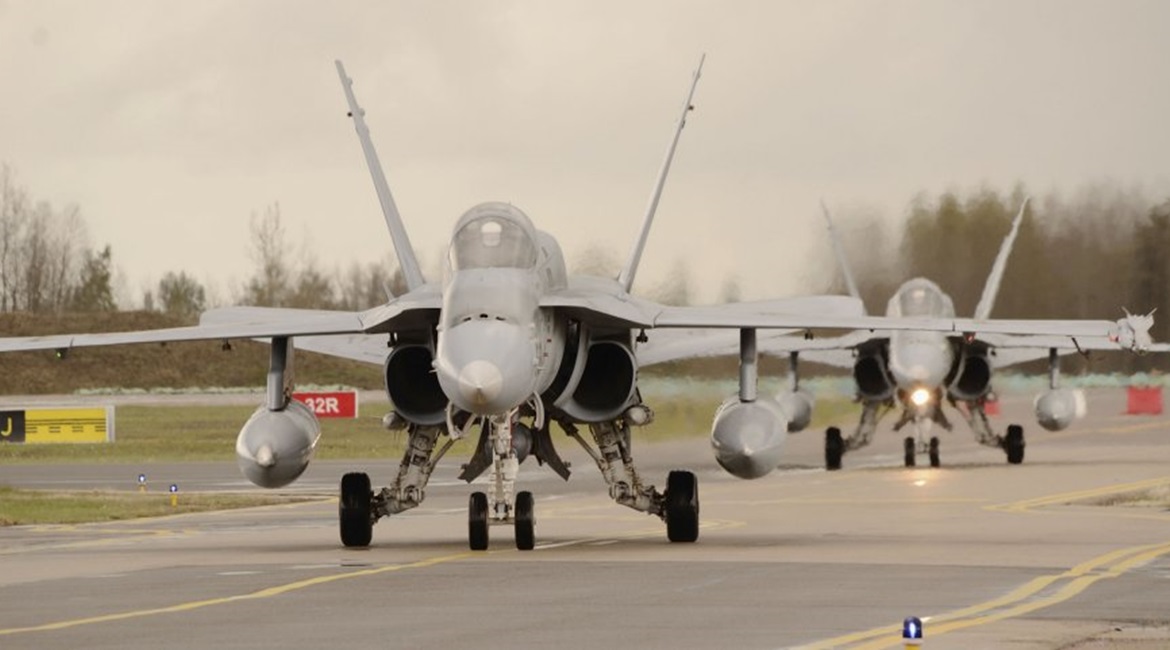
NATO pilots currently flying the alliance’s Baltic Air Policing (BAP) mission have reported that their Russian counterparts are displaying “professional” and “co-operative” behaviour during Quick Reaction Alert (QRA) interceptions in international airspace over the region.

The Spanish Air Force, which is leading the current Baltic Air Policing detachment with four Hornets, has reported no aggressive flying from Russian pilots they have so far encountered.
Speaking to reporters during NATO’s first ever ‘virtual press tour’ on 28 May, the commander of the lead Spanish detachment said that it has been the experience of his Boeing EF-18 Hornet crews that, when intercepting and shadowing Russian aircraft during Alpha-Scrambles (QRA responses specifically to Russian air activity), those pilots have not displayed any of the aggressive flying that has been previously reported across the Baltic and in other theatres.
“We have flown a number of Alpha-Scrambles [since beginning the current detachment on 1 May], and all the Russian pilots have been fully co-operative in their behaviour, and we have seen professional conduct from the Russian side,” Lieutenant Colonel Jesus Gutierrez Gallego said.
The Colonel’s comments were backed up by a NATO official at the same event, who noted that across the wider BAP mission that also currently includes French Dassault Mirage 2000s and British Eurofighter Typhoons, the experience of the Russian pilots had been largely positive, although not always. “Generally, the intercepts have been very professional. There have been some exceptions, but we have not been seeing any pattern [of aggressive behaviour from Russian pilots],” the official said.
Looking to read the full article?
Gain unlimited access to Janes news and more...